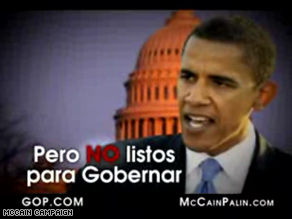| 557 |
Columba copies Finnian's Psalter to use in his own monastery. |
King Diarmait orders him to return the copy to Finnian. |
There was previous bad blood between Columba and Diarmait; after the ruling, Columba supports an uprising in which Diarmait is killed. |
| 1456 |
Gutenberg invents the printing press. |
Control of content moves from religious houses and individual authors or their patrons to owners of printing presses (which were scarce and expensive). |
The printing press creates a radical change in the price of making copies and in their quality, and shifts financial rewards from publishing to printers from authors (such as there were). |
| 1476 |
First English copyright law |
Printers have to register what books or pamphlets they produce. |
The Crown wants to prevent the distribution of information unfavorable to the government and to obtain revenues from selling licenses. |
| 1557 |
Company of Stationers of London incorporated under Queen Mary |
A long-time printer's guild gets royal sanction for an official monopoly on printing and begins controlling prices and distribution via a system of Stationers' Copyrights that could be bought, sold, or traded. Copyrights were perpetual (lasting for eternity). |
A Catholic monarchy gains additional control of content through prior censorship (the register) from a guild/company headed by a Roman Catholic. |
| 1624 |
Statute of Monopolies |
Parliament abolishes guilds and assumes the responsibility of regulation in their market areas—the Stationers Company excepted. |
The Statute helps erode the power of the Crown (and increases that of Parliament) as the Crown makes money selling monopoly rights; now Parliament assumes the mantle of censor. |
| 1695 |
Lapse of the licensing acts |
Parliament lets the last of the licensing acts which governed the rights of publication lapse, essentially abolishing prepublication censorship. However, under no copyright constraint, booksellers and printers in Scotland retypeset popular books from England and resell them at a lower price. |
Under pressure from vocal intellectuals such as John Milton and John Locke, Parliament lets the licensing acts lapse, but in practice nothing changes. The Stationers Company becomes a cartel, copyrights remain with publishers, and authors sell their material to the Stationers Company members for a flat fee. The increasing piracy from Scotland seems to be an unintended consequence. |
| 1710 |
Statute of Queen Anne |
A new copyright law is created to prevent future bookseller monopolies, granting some rights to authors, and encouraging production of more work. |
The Queen brokers the treaty with Scotland, giving them some of the book trade in return for coming under the copyright law, and to ensure support against potential invasions from France or an uprising of Jacobites; the Stationers Company trades some market control for the ability to continue as a monopoly. |
| 1769 |
Millar v. Taylor |
In a challenge to the Statute of Queen Anne, Taylor reprints a book published by Millar after the copyright runs out. Millar sues, claiming a perpetual copyright under common law. |
The court finds for Millar and for the first time asserts copyright under common law, clearly a promonopoly, probusiness, pro-Stationers' Company ruling. |
| 1774 |
Donaldson v. Beckett |
A Scottish printer republishes the same book involved in Millar v. Taylor, challenging the ruling of Millar v. Taylor. |
This case goes to the full House of Lords, which is less inclined to support the Stationers Company monopoly and more inclined to assert the power of government. Donaldson wins, and copyright is determined to be a state-granted right or license, not a right given to authors by God. |
| 1787 |
U.S. Constitution |
Article 1, Section 8 gives Congress the power to promote "science and the useful arts" through laws protecting intellectual property, but for limited time only. |
This is a compromise between promoting business (the exclusive rights), a position favored by James Madison, and guarding against the power of monopolies, a position favored by Thomas Jefferson. |
| 1790 |
U.S. Copyright Act |
Act puts into law the intent of the Constitution and extends copyright to maps and charts. The term length is 14 years, renewable for another 14, for a total of 28. |
As a descendent of the Statute of Anne, U.S. copyright still favors publishers over authors. |
| 1802 |
Extension to the Copyright Act |
Adds designs, engravings, etchings, and prints to copyright protection. |
Allows U.S. artists and engravers to make prints of classic works of art and resell them in the U.S. under copyright protection; encourages the distribution of cheaper European art in the States. |
| 1804 |
Napoleonic Code |
Codifies post-French Revolution rule for business, including copyright. Introduces the concept of "moral rights" for authors. |
Splits author's rights into (1) economic rights and (2) moral rights. The former could be sold, licensed, etc. while the latter gives the author rights beyond the sale of economic rights in how the work can be displayed, edited, resold, etc. |
| 1831 |
Extension to the Copyright Act |
Coverage for sheet music is added and the copyright period extended another 14 years (total of 42). |
Longer period of copyright favors owners (mostly publishers). |
| 1834 |
Wheaton v. Peters |
Peters wants to publish a condensed version of his predecessor's reports, recordings, and notes of court proceedings, Wheaton sues. The court finds for Peters because Wheaton hadn't filed the right paperwork. |
In this decision the court establishes that the U.S. recognizes no "common law" rights for authors and that copyright is a monopoly granted by the state. |
| 1841 |
Folsom v. Marsh |
Marsh republishes as excerpts 350 pages of a collection of George Washington's letters first published by Folsom; the courts find for Folsom. |
Establishes that there is a right to "fair use" of another's work—but that taking 350 pages verbatim is not fair use. |
| 1853 |
Stowe v. Thomas |
A German publisher translates Harriet Beecher Stowe's Uncle Tom's Cabin into German and sells it in the U.S.; Stowe sues, but the courts find for Thomas. |
Although this keeps intact the idea that you can copyright expressions of ideas, but not the ideas themselves, it galvanizes American authors into pressuring Congress to add foreign translation to the copyright laws in 1870. |
| 1856 |
Extension to the Copyright Act |
Right of performance of dramatic works. |
|
| 1865 |
Extension to the Copyright Act |
Photographs. |
|
| 1870 |
Copyright Act of 1870 |
Paintings, statues, fine arts, and translations are included. Codifies that U.S. copyright is a right granted by the state, not a right by natural law. |
Puts into law the concept established in Wheaton that no common law right to copyright exists. |
| 1886 |
Berne Convention |
Extends copyright to authors outside the country of origin. Eventually offers protection of life plus 75 years, but also promotes concept of author's "moral rights." |
U.S. doesn't sign, preferring the shorter copyright span of the Copyright Act because of the freedom from author control of derivative or follow-on works. |
| 1891 |
International Copyright Act (Chace Act) |
Copyright granted to non-U.S. citizens if reciprocated. |
Eastern publishers and printers finally support authors with Congress to protect business from lower-price Midwestern publishers. |
| 1909 |
Copyright Act of 1909 |
First time all copyright laws are put into one bill. First sale doctrine codified. Also allows corporate copyright and work for hire. Extends copyright to 28 years, renewable for another 28, for a total of 56. |
Helps newspapers and later motion picture companies to get copyright protection, giving them the rights of persons. Also establishes rules for when authors are "work for hire" employees. This is the first time companies get the same rights as people. |
| 1912 |
Extension of Copyright Act |
Gives copyright coverage to motion pictures after years of lawsuits under the 1870 Act. |
Blurs the separation of copyright protection for "expression" not "ideas." Even a "treatment" could be copyrighted. Screenwriters become employees and contract workers. |
| 1955 |
Universal Copyright Convention |
Substitutes for signing the Berne Convention and covers only 28 years of protection (for foreign authors selling books in the U.S.). |
Enables the U.S. to offer minimal protection of foreign works without signing onto all the conditions of the Berne Convention. |
| 1976 |
Copyright Act of 1976 |
Extends copyright to life of author plus 50 years; for anonymous works for hire, 75 years from publication, 100 years from year of creation. |
Sets the stage for signing the Berne Convention later and makes it easier for the U.S. to have reciprocal copyright agreements—important since the U.S. is not a net exporter of content. |
| 1984 |
Betamax case |
Universal Studios and Disney sue Sony, maker of the Betamax video tape recorder. The case begins in 1979 with a ruling that home taping was "fair use," then is reversed on appeal in 1981 and reversed again in 1984 by a 5–4 majority of the Supreme Court. |
Public opinion was largely against the concept (jokes about "video police"), and experts thought enforcement would be difficult. Many countries, however, impose a tax on VCRs and blank tapes and pay the proceeds to the movie industry. |
| 1988 |
U.S. signs Berne Convention. |
Extends U.S. copyright to life plus 50 years. |
U.S. signs in order to extend international copyright to life plus 70 years without major debate. Mickey Mouse is 60 years old at the time. |
| 1998 |
Sonny Bono Copyright Term Extension Act |
Extends the copyright coverage to life plus 70 years, mirroring many countries that are signatories to the Berne Convention. |
Gives U.S. publishers and authors reciprocal rights for those countries that also have 70-year copyrights; the Disney Corporation, whose copyright on Mickey Mouse in the cartoon Steamboat Willy is set to expire in 2003, spearheads lobbying Congress. |
| 1998 |
Digital Millennium Copyright Act |
The DMCA amends the Copyright Act by outlawing the use of techniques to prevent unauthorized copying and penalties for circumventing those techniques. |
The law mandates that hardware manufacturers build machines capable of recognizing copyright protection systems and sets the content industry against the MP3, VCR, CDR, and DVR industries. |






